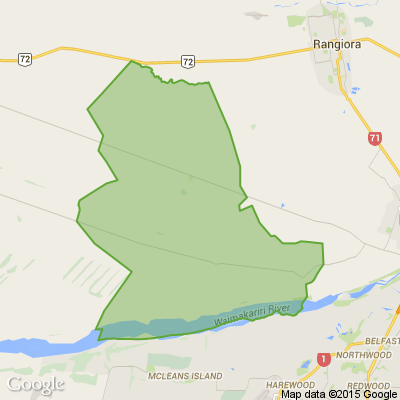Waimakariri council’s bid to create more affordable housing
By David Hill, Local Democracy Reporter
Councils need to work with the Government to help find solutions to the housing crisis, Waimakariri deputy mayor Neville Atkinson (pictured) says.
The Waimakariri District Council has backed a Greater Christchurch Partnership Housing Action Plan, which recommended eight immediate actions for councils to tackle the region’s housing shortage.
Atkinson said the plan encouraged councils to investigate a range of options including making council and Crown-owned land available as leasehold land for housing, and asking banks if they would offer loans for those developments.
‘‘We will be talking to the banks to see what they can do to support people on leasehold land.
‘‘We need to look at how does local government try to influence their decisions to make it easier for people to get into homes.
‘‘And how do we work with Government and local government and whether there is the possibility of releasing some Crown land for affordable housing.’’
Atkinson said the question of what is affordable housing also needed to be defined.
The councils wanted to explore what intensification of the housing market might look like and whether it was practical.
The Labour and National parties joined forces to pass the Resource Management (Enabling Housing Supply and Other Matters) Amendment Act in December 2021.
The legislation made medium density standards the default for large towns in high growth areas, such as Greater Christchurch.
But the National-led Government has indicated it will relax the legislation to offer more flexibility.
‘‘It is OK to say we are going to allow intensification from Kaitaia to Bluff, but there are many different things to think about along the way,’’ Atkinson said.
‘‘Every town is different and intensification on Colombo St looks a lot different from intensification on King St in Rangiora.’’
Other options included investigating ‘‘inclusionary zoning’’ to increase the supply of social and affordable rental housing.
Inclusionary zoning has been introduced in Queenstown and Waikato and is seen as ‘‘a game-changer’’.
The councils will also investigate what incentives could encourage the development of affordable housing, rebates for social housing (which are offered in Christchurch) and models like the Ōtautahi Community Housing Trust (Christchurch).
Atkinson said there has been enough talk and now is the time for action.
‘‘I want to see some changes instead of just yakking and I do believe this plan gives us the opportunity to do that.
‘‘And even within the partnership we can still be nimble to recognise the differences in each district.’’
The Greater Christchurch Partnership is a collaboration between the Christchurch City, Selwyn and Waimakariri District Councils,
Environment Canterbury, Te Rūnanga o Ngāi Tahu and Government agencies.
■ LDR is local body journalism co-funded by RNZ and NZ On Air.

Best way to use leftovers?
I'm sure you've got some excess ham at home or cold roast potatoes.
What are some of your favourite ways to use leftover food from Christmas day? Share below.

Booster seat
Help family arrived but forgot there booster seat. Anyone out there we could borrow one for 9 days
⚠️ DOGS DIE IN HOT CARS. If you love them, don't leave them. ⚠️
It's a message we share time and time again, and this year, we're calling on you to help us spread that message further.
Did you know that calls to SPCA about dogs left inside hot cars made up a whopping 11% of all welfare calls last summer? This is a completely preventable issue, and one which is causing hundreds of dogs (often loved pets) to suffer.
Here are some quick facts to share with the dog owners in your life:
👉 The temperature inside a car can heat to over 50°C in less than 15 minutes.
👉 Parking in the shade and cracking windows does little to help on a warm day. Dogs rely on panting to keep cool, which they can't do in a hot car.
👉 This puts dogs at a high risk of heatstroke - a serious condition for dogs, with a mortality rate between 39%-50%.
👉 It is an offence under the Animal Welfare Act to leave a dog in a hot vehicle if they are showing signs of heat stress. You can be fined, and prosecuted.
SPCA has created downloadable resources to help you spread the message even further. Posters, a flyer, and a social media tile can be downloaded from our website here: www.spca.nz...
We encourage you to use these - and ask your local businesses to display the posters if they can. Flyers can be kept in your car and handed out as needed.
This is a community problem, and one we cannot solve alone. Help us to prevent more tragedies this summer by sharing this post.
On behalf of the animals - thank you ❤️








 Loading…
Loading…















